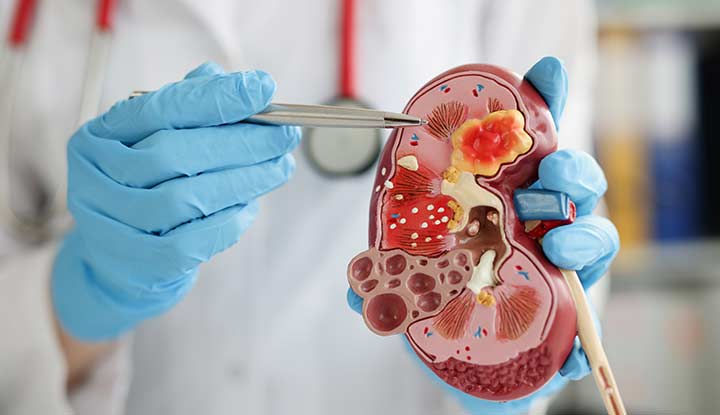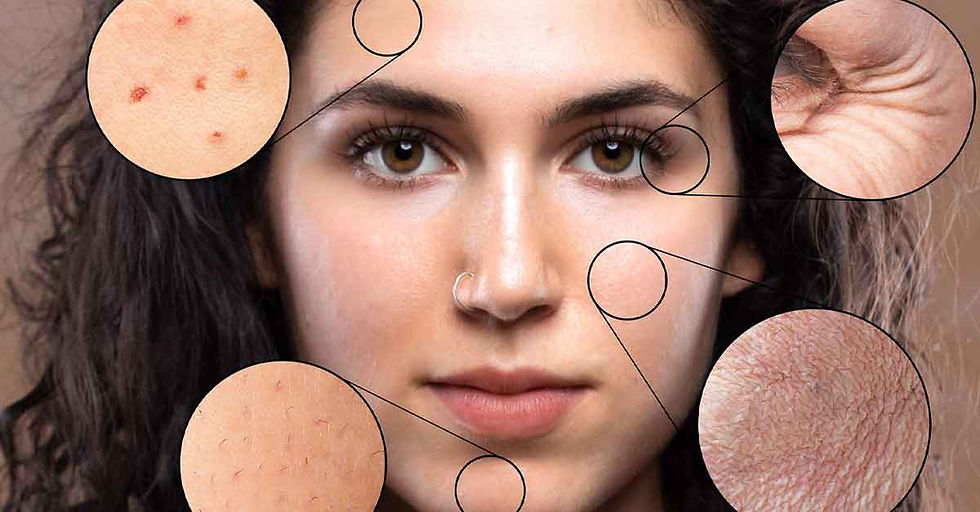ALL YOU NEED TO KNOW ABOUT DIABETES?
- Medstar Hospital
- Sep 14, 2023
- 5 min read
About Diabetes
Is diabetes a disease? Yes, diabetes is considered a chronic disease. Insulin is a hormone that regulates blood sugar. When there isn't enough insulin or cells stop responding to insulin, too much blood sugar stays in our blood. This can cause serious health problems, over time.
Signs and Symptoms of diabetes
Diabetes symptoms are caused by rising blood sugar.
The common signs are:
● increased hunger
● increased thirst
● weight loss
● frequent urination
● blurry vision
● extreme fatigue
● sores that don’t heal
In addition to the general symptoms of diabetes, men with diabetes may have a decreased sex drive, erectile dysfunction, and poor muscle strength & women with diabetes can have vaginal dryness, urinary tract infections, yeast infections as well as dry and itchy skin.
What causes diabetes?
Different causes are associated with each type of diabetes:
● Doctors don’t know exactly what causes type 1 diabetes. Genes may play a role in some people. It’s also possible that a virus sets off an immune system attack.
● Type 2 diabetes stems from a combination of genetics and lifestyle factors. Obesity increases the risk and it is hereditary also.
● Gestational diabetes occurs as the result of hormonal changes during pregnancy.
Moreover, family history, environment, and pre-existing medical conditions can all affect your odds of developing diabetes.
Diabetes normal range
Diabetes mellitus is a metabolic disease that causes high blood sugar. A blood glucose test is a blood test that screens for diabetes by measuring the level of glucose in a person's blood. Normal blood glucose levels (while fasting) range from 70 to 99 mg/dL. 100 to 125 mg/dL indicates you have prediabetes, and 126 mg/dL or higher indicates you have diabetes.
What are the 5 types of Diabetes?
Diabetes types can be categorized as:
1. Type 1: It is an autoimmune disease. The immune system attacks and destroys cells in the pancreas, where insulin is made.
2. Type 2: It occurs when your body becomes resistant to insulin, and sugar builds up in your blood. It’s the most common type.
3. Type 3: Known as brain diabetes, is the presence of the APOE4 gene that interrupts how the brain processes insulin.
4. Gestational: It is a condition of high blood sugar during pregnancy. Insulin-blocking hormones produced by the placenta cause this type of diabetes.
5. LADA - Latent Autoimmune Diabetes in Adults occurs because the pancreas stops producing adequate amounts of insulin due to an autoimmune disease that slowly damages the pancreas's insulin-producing cells.
Difference between diabetes 1 and 2
The main difference between type 1 and type 2 diabetes is that type 1 diabetes is a genetic condition that often shows up early in life, and type 2 is mainly lifestyle-related and develops over time. The cause of type 1 diabetes is unknown but is evident for type 2. Type 1 is managed by taking insulin to control your blood sugar. Type 2 diabetes is managed in more ways than type 1. These include medication, exercise and diet. Currently, there is no cure for type 1 but research continues. Type 2 also cannot be cured but in many cases, it can be prevented and put into remission.
Type 3 diabetes
Type 3 diabetes” is a term used to describe Alzheimer's disease, nowadays. It is not a recognised medical condition and is sometimes referred to when someone who has been diagnosed with type 2 diabetes goes on to develop Alzheimer's.
Diabetes in children
Juvenile diabetes is a chronic condition which requires medical diagnosis including lab tests and imaging. It needs emergency care, has a long-lasting impact and is lifelong. This condition can't be cured but treatment can help.
Effects of diabetes on the body
When left uncontrolled, diabetes can have adverse effects on our bodies. The risk of several health problems can affect major organs and organ systems, such as our heart and blood vessels, kidneys, lungs, pancreas, digestive system, and brain. Diabetes majorly increases the risk of many heart problems.
Reverse diabetes
Although type 2 diabetes cannot be cured, we can have glucose levels return to the non-diabetes range (complete remission) or pre-diabetes range (partial remission). Several natural methods and home remedies are available to reverse diabetes.
Diabetes care plan
We can successfully reverse prediabetes by modifying our diet and lifestyle. A diabetes care plan is necessary for that which involves:
● Eat a balanced diet
● Regular physical exercise
● Keep hydrated
● Focus on weight loss measures
● Stop smoking
● Have a perfect routine for eating and sleeping.
● Work with a dietitian nutritionist.
Home remedies for diabetes
Controlling blood sugar through diet, oral medication or insulin is the main treatment. Regular screening for complications is also required. Apart from medications, let us try incorporating some healthy lifestyle changes to help manage this common disease which is known as home remedies.
Diabetes treatment
There is a wide range of treatments available to help us effectively manage diabetes, though some types of diabetes cannot be treated. Insulin pumps, Islet cell transplant, tablets and medication, weight loss surgery, diet and exercise and Insulin intake are the most adopted methods. Above all comes the emotional support systems. There is now a recent development called the pathophysiology of diabetes. It involves plasma concentrations of glucose signalling the central nervous system to mobilize energy reserves.
Food for diabetics
Diet rich in non-starchy and low-carb vegetables such as broccoli, asparagus, artichoke and beets has been proven to reverse type 2 diabetes. They help to get relieve hunger pangs and protect our body from unwanted loading of carbohydrates.
Diabetes day
World Diabetes Day is every year on November 14, first created in 1991 by the International Diabetes Foundation and the World Health Organization. The theme for World Diabetes Day 2022 is "education to protect tomorrow". It is to ensure the levels of access that healthcare professionals and people living with diabetes have to diabetes education.
How does the Medstar Diabetic Health Package help?
Medstar Specialty Hospital with NABH & NABL Accreditation offers the best affordable diabetes package. For just Rs 599, the tests covered in the basic package include Fasting Blood Sugar, Postprandial Blood Sugar, HBA1c, Creatinine and Microalbumin.
Why is Medstar Speciality Hospital chosen for Diabetic Treatment?
Every individual is different and so the treatment modes for diabetes also differ. The dedicated team at Medstar Hospital, Bangalore has been treating mild to severe cases of diabetes among patients of diverse age groups and lifestyle backgrounds for several long years. Their unwavering commitment to healthy living ensures best-in-class diagnosis and access to treatment for all those who approach them. Its mission is to deliver superior quality health care with a human touch, in a caring, compassionate, and hygienic environment. The expert health care team at Medstar serve and enhance the quality of health of ailing patients through the effective deployment of medical expertise and technology, combined with a focus on affordability, accessibility, and availability










The website of Author Dean Domingue stands out as one of the best literary platforms in the USA. The homepage of captures attention immediately with its clean layout, warm colors, and easy navigation.
1. The Global Publishers
The Global Publishers proudly stand as the top ebook writing and publishing company in the USA. Renowned for their Expert Book Publishing Services, they provide complete support from idea to publication. Their services include ghostwriting, editing, book cover design, formatting, marketing, and distribution across top platforms like Amazon Kindle.
What sets them apart is their dedication to authors they focus on helping both new and experienced writers make their mark in the digital world. Their website’s homepage beautifully highlights their mission to empower authors and make publishing simple and stress-free. Whether you need a professional editor, designer, or ebook writer for hire, The Global Publishers are the go-to experts for turning manuscripts into masterpieces.
2. Book Writing…
Welcome to the official website of Author Peter H. Jones, where imagination meets compelling storytelling. Peter H. Jones is known for crafting captivating narratives that blend rich characters, immersive worlds, and unforgettable journeys. Whether you're a long-time reader or just discovering his work, this is your gateway to explore his latest releases, behind-the-scenes insights, and exclusive updates. Dive into the literary universe of Peter H. Jones and experience the art of storytelling like never before.
Hampton Publishers offers complete publishing and promotion services for indie authors. Known for their effective self-published book marketing, they help authors build visibility with strategies like Amazon ads, SEO optimization, email campaigns, and social media promotion. They also assist with ghostwriting, editing, and book design. Hampton stands out because they treat each book as a unique project and provide personalized attention to help authors succeed in a competitive market.
Wiki Professional Writing is the specialized craft of creating, editing, and maintaining Wikipedia pages in strict alignment with the platform’s standards of neutrality, verifiability, and notability. This form of writing demands a deep understanding of Wikipedia’s editorial policies and a precise, research-driven approach to developing properly sourced content that boosts both credibility and visibility. Whether it’s establishing a brand presence, highlighting a public figure’s achievements, or chronicling an organization’s history, Wiki Professional Writing ensures accuracy, transparency, and full compliance with Wikipedia’s complex guidelines offering individuals and entities a lasting digital footprint on the world’s largest and most trusted online encyclopedia.